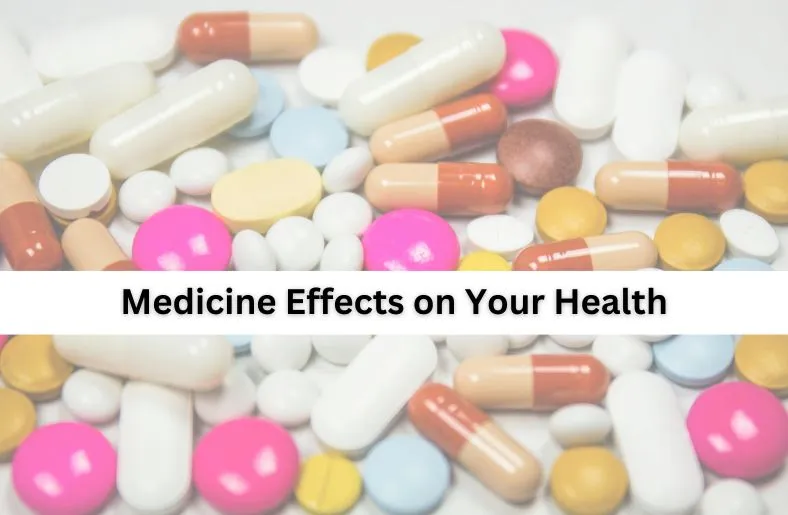Medications are intended to heal, but occasionally, they have accidental consequences. If you’ve experienced adverse medicine outcomes that have negatively impacted your health, you may have legal rights you’re unaware of.
Within this article, we aim to navigate the intricate legal terrain, equipping you with the knowledge to pursue compensation and safeguard your welfare.
Identifying Adverse Medicine Outcomes
Identifying adverse medicine outcomes involves recognizing the unintended consequences of taking medication. These side effects can range from mild ones, like nausea or headaches, to more serious reactions, like allergic reactions or organ damage. It’s crucial to pay attention to any new symptoms that arise after starting a medication, especially if they worsen over time.
According to the CDC, 1.3 million emergencies of adverse drug reactions are reported every year. Out of these, every 350,000 patients need to be hospitalized after emergency first aid for further treatment. As people age, they consume more medicines; hence, the chances of adverse drug reactions increase.
Be sure to compare these symptoms to known side effects listed on the medication or discuss them with your doctor. If you experience anything unexpected, don’t feel shy to visit your doctor or pharmacist to determine if it might be an adverse reaction.
Legal Rights and Remedies
When a prescribed medication unleashes serious side effects, the impact can be devastating. These effects can range from long-term pain and disability to lost wages and a shattered quality of life. The law recognizes this potential for harm and grants you legal rights to seek justice.
If a manufacturer fails to warn about risks or a doctor prescribes medication without considering your medical history, you may be eligible for compensation. This compensation covers medical expenditures, missed salaries, physical impairment, and injuries.
For instance, according to DrugWatch, Daniel Weibel was the first accuser to file a lawsuit against Tepezza’s manufacturers. He did this after he experienced complete hearing loss and tinnitus. As of May 2024, 113 Tepezza cases have been filed in MDL, all of which are still pending.
Establishing Liability
Establishing liability in a case with serious adverse reactions from medication hinges on proving a breach of duty. This means demonstrating that the involved party, be it the manufacturer, doctor, etc, failed to uphold the standard of care expected in their profession.
In the case of a manufacturer, this could involve inadequate testing, failure to warn about known risks, or even manufacturing defects. For healthcare providers or doctors, it may involve recommending incorrect medication, improper dosage, or neglecting to consider probable interactions with other medicines.
This compensation not only reduces the financial load but also acts as a form of justice, holding the responsible party accountable for the damage.
Filing a Legal Claim
When adverse health effects occur due to medication, legal action may become necessary to seek accountability and compensation. Consulting a specialized attorney is the first step, who will assess your case’s merits and guide you through the process.
Evidence gathering, including medical records and financial loss documentation, is crucial. Your attorney will then assist in filing the necessary legal documents, potentially leading to settlement negotiations or litigation if an agreement cannot be reached.
One notable example of a legal claim arising from adverse medicine outcomes is the Tepezza lawsuit. Tepezza, a medication used to treat Thyroid Eye Disease (TED), has been associated with reports of hearing loss among some patients. Consequently, many affected individuals have sued the manufacturer of Tepezza, alleging negligence and seeking compensation for their injuries.
This lawsuit is against the manufacturers because its label does not include any warning about it causing tinnitus or hearing loss. It can be the first step towards securing reimbursement and accusing the responsible people accountable for the loss.
As per TorHoerman Law, if you’ve suffered a serious adverse reaction to Tepezza, filing a legal claim might be an option to consider. This is the right time to file a lawsuit, as it is just the beginning, and there are only a few cases.
Legal Challenges and Considerations
The road to justice can be complex. While legal rights exist for adverse medicine outcomes, accusers face challenges. Proving causation can be difficult. You’ll need medical records demonstrating the medication preceded your health problems, and excluding other potential causes might require specialist evaluation. The pharmaceutical industry has vast resources for legal defense, so expect a lengthy process.
Financial considerations are also important. Lawsuits can lead to unusual expenses, and there’s no assurance of success. Carefully weigh the potential benefits of compensation against the financial and emotional speculation involved.
In light of the Tepezza case mentioned, Forbes reports that approximately 15,000 individuals with thyroid eye disease used the medication. This was likely because Tepezza was one of the few treatment options available to them.
More than 65% of drug users faced adverse reactions, but only very few filed a lawsuit against manufacturers. Those accusers were able to establish the link between their problem and Tepezza. Therefore, consulting an attorney specializing in such cases can help you guide you on how to start and how to proceed.
Settlement Negotiations and Trial Proceedings
You must keep in mind that not all lawsuits go to trial. Many cases involving adverse medicine reactions are resolved through settlement negotiations. In these negotiations, attorneys for both sides discuss potential compensation packages to avoid the uncertainties and costs of a courtroom battle. These negotiations can be lengthy and involve back-and-forth proposals.
If there is no chance of settlement, the case may proceed to trial. Here, the burden of proof lies with the accuser to establish liability through witness testimonies, medical evidence, and expert opinions. The opposing side will counter with their arguments, aiming to disprove causation or downplay the severity of the damages. The judge will finally decide the result, potentially awarding compensation for all damages and losses.
Also Read >>>> Understanding Setriasona | A New Frontier in Health
Frequently Asked Questions
What defines an adverse medicine outcome, and how can I recognize it?
Medication can sometimes have unintended side effects, from minor inconveniences to serious health problems. Be mindful of any new symptoms that appear after starting a new drug, especially if they get worse over time. If you experience anything unexpected, talk to your doctor to see if it could be a reaction to the medication.
What are my legal rights if I’ve suffered adverse effects from medication?
Serious side effects from medication may grant you legal rights. It applies if the drug manufacturer fails to warn of risks or your doctor prescribes it without considering your medical history. Consulting an attorney specializing in pharmaceutical litigation can determine if you have a case.
Who can be held accountable for adverse medicine outcomes, and how can I seek legal recourse?
If your medication has hidden dangers or manufacturing defects, you can sue the drug company. Healthcare providers can also be held responsible if they prescribe a medication incorrectly, leading to severe reactions.
To conclude, navigating the legal complexities of adverse medicine reactions can be daunting, but understanding your rights empowers you to make informed decisions. Remember, the road to compensation may be challenging. With careful consideration and the guidance of a qualified attorney, you can pursue justice and potentially hold those responsible accountable for the harm caused.
Don’t hesitate to seek legal consultation if you’ve suffered serious side effects from medication; your well-being deserves to be protected.





